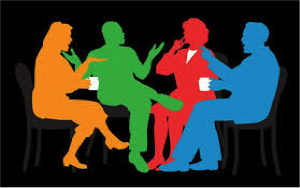Family Therapy
Family and Systemic Psychotherapy helps people in a close relationship help each other.
It enables family members, couples and others who care about each other to express and explore difficult thoughts and emotions safely, to understand each other’s experiences and views, appreciate each other’s needs, build on strengths and make useful changes in their relationships and their lives. Individuals can find Family Therapy helpful, as an opportunity to reflect on important relationships and find ways forward.
A systemic perspective takes the view that there is no one single member in a family who is the problem- rather the problem lies in the relationship- this allows each member to make changes that affect the other and contribute towards improved relationships.
Having a space to reflect on early family/ life experiences is a useful part of this process and can reflect how our ideas of the world have been shaped. I incorporate the use of a family genogram to further explore our value systems, stories through the generations, patterns and connections. Many people find this a useful way to elicit and track important themes pertinent to the work.
Family Therapy aims to be:
• Inclusive and considerate of the needs of each member of the family and/or other key relationships (systems) in people’s lives
• Recognise and build on peoples’ strengths and relational resources
• Work in partnership ‘with’ families and others, not ‘on’ them
• Sensitive to all family forms and relationships, beliefs and cultures.
Couples therapy
Systemic based couple therapy provides a space to view your relationship from a new perspective. The work is collaborative and invites you and your partner to feel more comfortable to experiment with new ideas.
Part of the work involves identifying and working with unhelpful or stuck patterns in the relationship that may initially seem difficult to shift.
The opportunity to reflect on intergenerational beliefs and values around relationships is a useful part of this process and can reflect how our ideas of the world have been shaped. Often the use of family genograms can provide a visual representation of family patterns and relationship styles.
Couples and Family therapy can be quite an active process, once patterns of relating and communicating are identified it is often helpful to identify and suggest tasks to help you change these patterns and provide a space to reflect on whether these changes are helpful to you.
All relationships have their ups and downs but sometimes things can become overwhelming or unmanageable. Each relationship is unique and the following are just some of the reasons why a couple may seek support:
• Loss of sexual intimacy and/or sexual identity
• Job status/redundancy
• Fertility issues
• Loss and bereavement including termination and miscarriage
• Infidelity and breakdown of trust
• Depression and anxiety
• Illness
• Self-destructive behaviour
• Trauma – past or present
• Adjusting to new relationships: in-laws, step-children, blended families etc.
• Ageing, retirement
When serious problems emerge, couples can feel very stuck in negative and destructive dynamics. Sharing one’s thoughts and feelings about each other in the presence of a third person can be invaluable in helping couples to make sense of what’s going on, to start talking again in more constructive ways, leading to a deeper understanding of the other and, in turn, a more enriched and trusting relationship.
I also have experience working with couples who have decided to separate and we work together to explore what went wrong and how to split amicably. I believe it is vital to have an understanding of the situation despite the end result. Particularly when children are involved, relationships continue – albeit in a different format.

